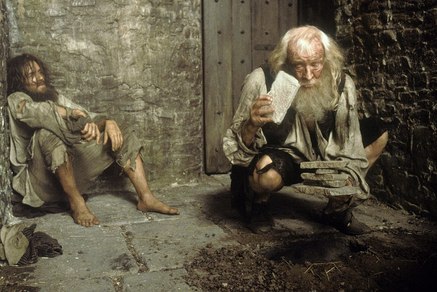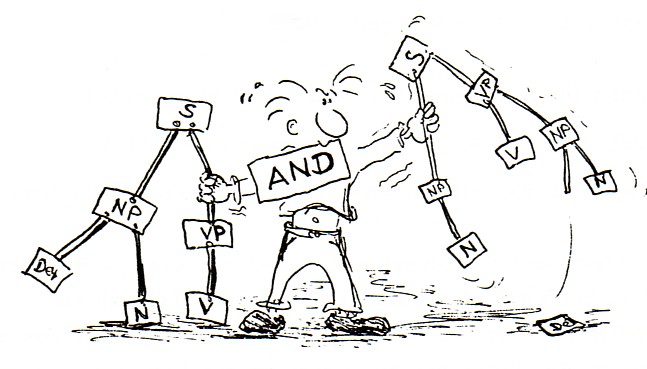Playing games is always fun specially when it makes new things easier to learn like how to change words when writing a literary thesis. In class, Mrs. Fassbender told our class to split into 2 teams with three groups within. Each group was going to go against a group on the opposite team and whoever came up with the most synonyms for your assigned word won. The team with the most wins would be the on to get the World Champion Belt. I was in a group that got assigned the word "show/shows".
Here is the list of words we came up with.
- implies
- demonstrates
- paints
- displays
- portrays
- draws
- parallels
- emphasizes
- unmasks
- exposes
and more.
Whenever you are writing a thesis statement avoid the writing the reader and says/said. I think I'm getting better at writing Thesis Statements.
Jose.

The most recent movie we have watched is The Count Of Monte Cristo. Edmond Dantes is a crew man who go to the island of Elba to seek medical help for his injured captain. Dantes although is asked from Napoleon himself to deliver a letter to someone named Mr. Clarion. Edmond's bestfriend, Fernand Mondego, steals that letter in his sleeps and send his own best friend to jail after stealing his life. Betrayed and hopeless, Edmond is sent to Chateau d'if to rot there forever but instead escapes from that prison as a changed more knowledgeable man. He devotes his energy into bringing justice with his own hands. Edmond wants revenge.
Edmond is the protagonist in this story that goes through a intense change. His character is a dynamic character with a external locus of control. Through out the story, you see a few allusion to the bible such as the Quote on his cell's wall that says "God Will Give Me Justice." The predominant symbol of the movie was at the end when that chess piece was found by Fernand when he was trying to run away. This chess piece is symbolic of Karma and it's also an example of situational irony since Fernand had given Edmond that piece at the beginning. The theme of this movie is one is capable of a self transformation no matter what you situation is. My favorite character is Abbe Busoni. I feel he represents God's wisdom since he took the time to polish the rough diamond that was Edmond.
P.S During a jail class, Abbe Busoni says that neglect is our ally. Do you believe so?
Jose.
The last literary element that I had a hard time engraving it in my brain was Syntax. For some odd reason, everytime I read that word I think of the Lorax. (I think it's because they both end in "ax".) Syntax is defined as the way an author structures words to form a sentence. In other words the sentence structure.
So what's the big deal about syntax?
The most important aspect of Syntax is the way it connects together all the parts of a sentence correctly. So English has a certain Syntax that requires a sentence to have a subject and a predicate. This allows all of the literary works possible. Think of syntax as one of those games that requires a baby to put in the right shape into its corresponding place. The board is the syntax and the individuals shapes are the parts of the sentence. The syntax is kind of the foundation of the written language.
P.S "Look at that author's syntax" said no one ever.
Jose.
So when I read the list of Common Literary Elements and read Malapropism, I didn't even think twice to Google this term. Malapropism is defined as purposely misusing words to add a comic effect and has certain similarities to the french word mal a propos which means out of place. There are some examples of Malapropism in Shakespeare's Romeo and Juliet in the speech of the nurse. Malapropism is connected to a famous character named Mrs. Malaprop from the 1775 play called The Rivals by Richard Brinsley Sheridan where she stays true to her name and misuses lots of words through out the play. I find it so interesting how every word we use has some secret origin.
An example would be:
"He was a man of great statue."
Thomas Menino, Boston mayor
P.S Below is the first scene of the Play.
Jose.
Today, our English class took a practice AP English and Composition short test to see where we are and how we feel about it. We had three passages to read and then we would have 11 questions to answer per passage. I felt really good about the passages and felt that I knew most of the answers. I did although had some tough cookies. I think that if you stay relax during this kind of questions you will find the light sent from above and hear the angel choir sing the right answer. One key factor is REREADING the sections of the passages if you have time.
Jose.

Finals are always one stressful week. I was thinking that it's kind of ironic that I've been in school for a long time and each year finals makes me nervous. When I read "American History" by Judith Ortiz Cofer and was told to analyze I felt a bit relaxed. I like to read. I like to imagine what it would be like to be standing next to a character or to be one in it. The story is about a young girl named Elena who struggles to accept the mixtures of both American and Puerto Rican cultures. Elena is in this world where she is the only who matters and everything else, like the assassination of President Kennedy, does not matter. The only thing that does matter to Elena is a blond, blue-eyed class mate named Eugene that she thinks is the most beautiful boy in the world. As school progressed, Elena gets invited to Eugene's house to study for a History exam and she gets shut down by his mother as soon as she sets foot on their door.
As a review for our final, I pretty much had this story in the bag. I understood it clearly. While sharing what each of our class found individually, I was shocked to see what I had missed! I missed simple things like tone, mood, and significance of the title. In my reflection paper, I wrote that it wasn't that I didn't know how to identify them, it was just that I was so deep into that story that I forgot to look for them. The tone of the story was one of recognition, of acceptance. The mood was an egocentric one as she cared only about herself. Lastly the title fits in with the story in multiple dimensions. Not only was does the title refer to both historical events, the assassination of President John F. Kennedy and Immigration, but also relates to the plot since she was after all going to Eugene's house to study for a history test.
Jose.
We all have those literary elements that your face is like:
The literary term of lilotes was the reason why my face used to reflect this expression. I find it kind of funny. You see, there is nothing hard about Litotes. Litotes is defined as a figure of speech in which affirmative is expressed by the negation of the opposite. So it's like you negate a LIE. There's nothing hard about it. A litotes is a form of irony because it uses understatements and its opposite to his almost twin, Hyperbole. When I took my Irony quiz, I got this question wrong. Really Jose? Well, at least now I understand what it is.
I took the liberty to create some examples:
- Mozart is no dummy.
- Ypsilanti High School isn't pointless.
- He is not the nicest guy I've met.
Jose.






 RSS Feed
RSS Feed